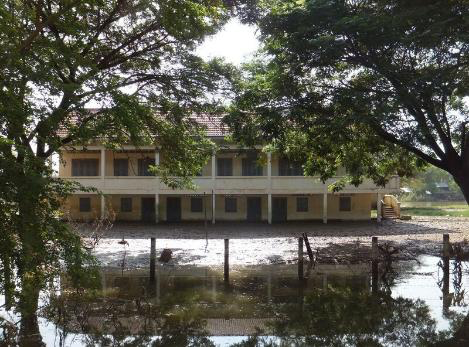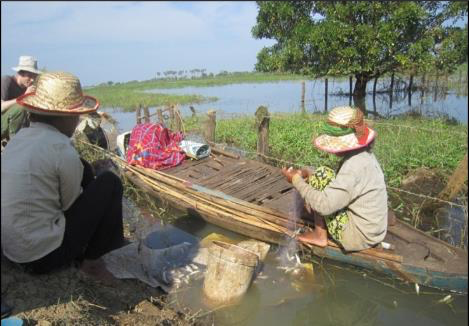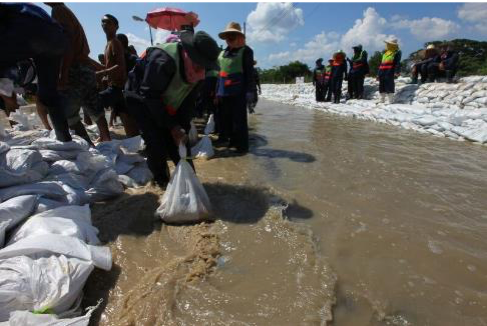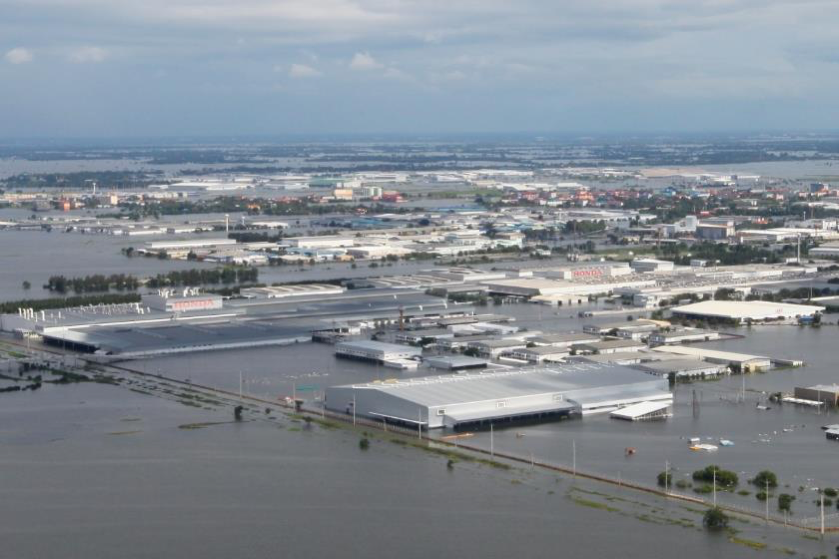“Flooding is a common experience in monsoonal regions of South East Asia, where diverse flood regimes have for centuries shaped agrarian and fisheries-based livelihoods.”
Publications
Read the policy brief
Edited Book (2018): Living with Floods in a Mobile Southeast Asia: A Political Ecology of Vulnerability, Migration and Environmental Change Published by Earthscan-Routledge
Open Access: Elmhirst, Middleton and Chantavanich(2018) "Chapter 1: Migration and Floods in Southeast Asia"
Edited Book (2013): On the Move: Critical Migration Themes in Southeast Asia International Organization on Migration Published by (IOM) and the Asia Research Center on Migration (ARCM), Chulalongkorn University.
Journal article: coming soon
Further information
Contact
Contact Dr Carl Middleton for further details.
Project Status: Complete
Mobile political ecologies of Southeast Asia
From the pronounced seasonality of wet-season rice cultivation through to the rhythms of the flood pulse of the region’s mighty rivers that links agriculture and wild capture fisheries across extensive wetlands, the movement of water has historically played an important part in shaping the seasonal movement of people.
Southeast Asia is a very mobile region; many households pursue domestic and trans-national migration strategies for reasons that range from diversifying income sources, including across different locations (i.e. multi-local livelihoods), to spreading household risks related to environmental, economic and political shocks. Whilst regular seasonal floods are often beneficial in rural areas, where livelihood strategies adapt to “living with floods”, in recent public discourse, the link between flooding and migration is most often made with regard to catastrophic flood events. News images and personal experience of frequent and intense weather-related flood events in the region’s low-lying megacity and delta regions in recent years has contributed to a perceived link between extreme environmental events and mass migration through displacement.
The purpose of this project it to respond to the need for a nuanced understanding of the connections between flooding and migration in Southeast Asia. Our aim is to complicate simple readings of environmental change – in particular flooding – as a singular driver of migration through exploring a diversity of flood-migration-vulnerability assemblages. Thus, we aim also to sensitize flood hazard policy agendas to the complexities of migration and mobility in Southeast Asia.
We propose a “political ecology of mobility” that incorporates a nuanced appreciation of diverse forms of floods, and a recognition of varieties of migration. The project is organized around four urban case studies in Vietnam, the Philippines, Indonesia and Myanmar; and four rural cases studies in Cambodia, Laos, Thailand and Malaysia. Each case study has been selected to represent the diversity of flood regimes in the region (from seasonal, ‘beneficial’ floods in rural areas through to urban flash floods and coastal inundation) as well as to different migration contexts.
Key findings from the project:
Regarding the impacts of floods on migration and mobility
Flooding alone does not determine long-term migration – there are many other influential factors that motivate or discourage migration
The effects of floods on mobility depend on whether or not these exceed an acceptable level, as well as whether a household has other in situ options to turn to or not
Sometimes, floods can reduce mobility, for example through impacting transport systems
Voluntary relocation in response to high or rising risks of floods may be a strategy for some households with sufficient resources, but decisions also influence by social and emotional attachment to a place
Government policies can be a source of risk itself, including by making people move (to safe places devoid of livelihoods), and linked to related policies such as on natural resource allocation
Regarding the consequences of migration on vulnerabilities to floods
There have been significant impacts by floods on migrants that move to flood-prone areas of major cities, including: damage to assets; loss of employment (formal and informal); and health risks
Floods impact some migrants much more than others, and generally more than residents
Migrants may stay in high risk flooding environments because the benefits outweigh the costs, including affordable accommodation and to be near employment. They therefore exchange one form of risk for another
The project is undertaken in collaboration with:
• Asian Research Center for Migration, Institute of Asian Studies, Chulalongkorn University
• Master of Arts in International Development Studies Program, Faculty of Political Science, Chulalongkorn University
• School of Environment and Technology, University of Brighton
• Institute of Asian Studies (IAS), Chulalongkorn University
• Chulalongkorn University Social Research Institute (CUSRI), Chulalongkorn University
• Stockholm Environment Institute (Asia)
• Southeast Asia Disaster Prevention Research Institute, Universiti Kebangsaan Malaysia (SEADPRI-UKM)
• Research Institute on Contemporary Southeast Asia (IRASEC)
• Asian Institute of Technology
• Faculty of Sociology, University of Social Sciences and Humanities, Vietnam National University, Hanoi
The project has received support from the Rockefeller Foundation, the Stockholm Environment Institute; and Chula Global Network, and is led by the Asian Research Center for Migration of Chulalongkorn University.








